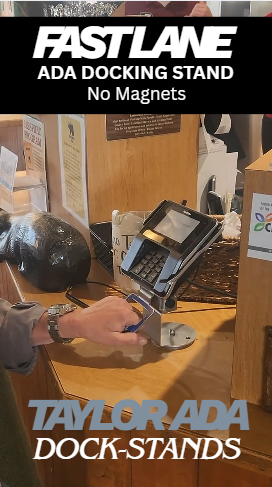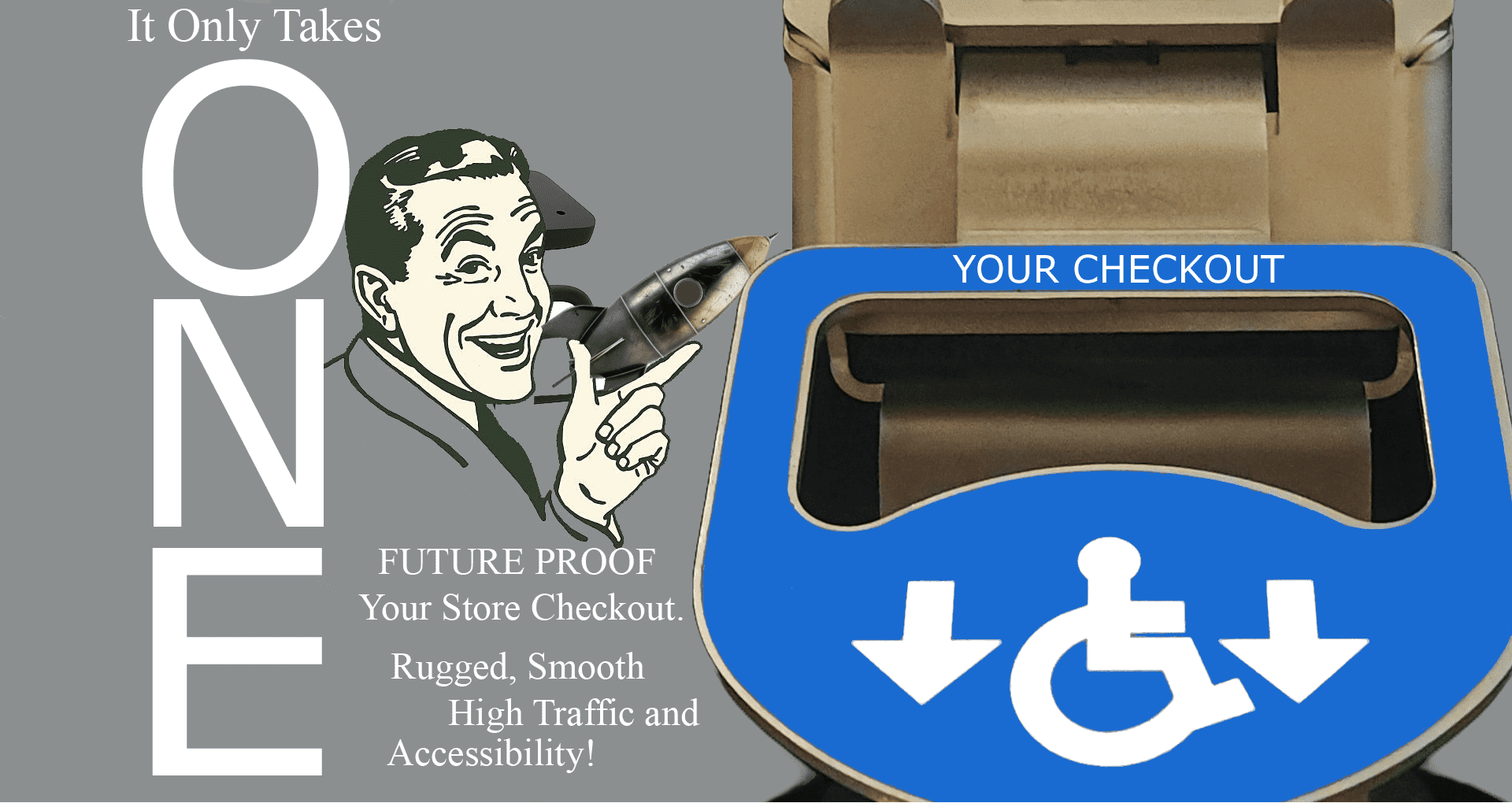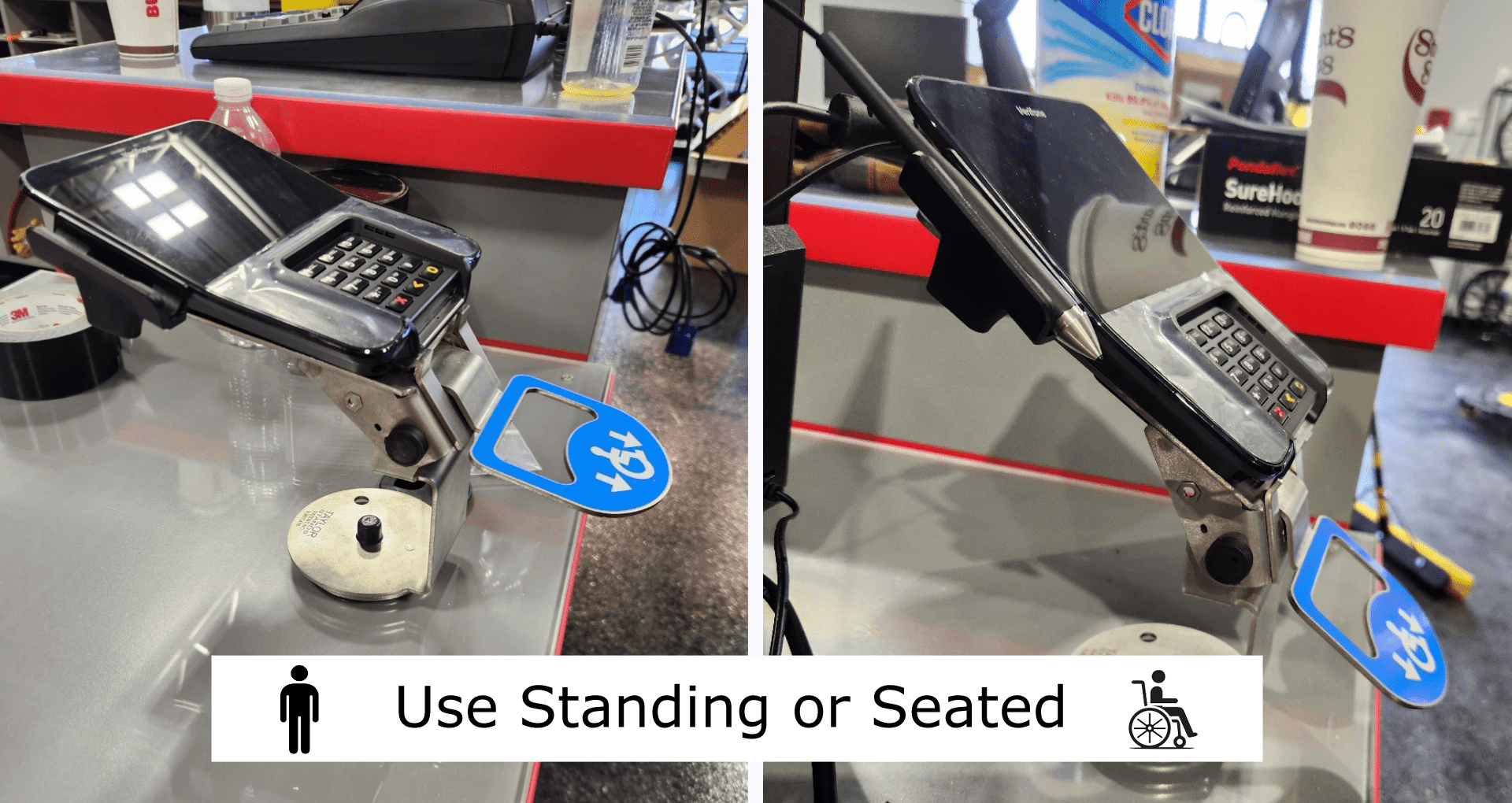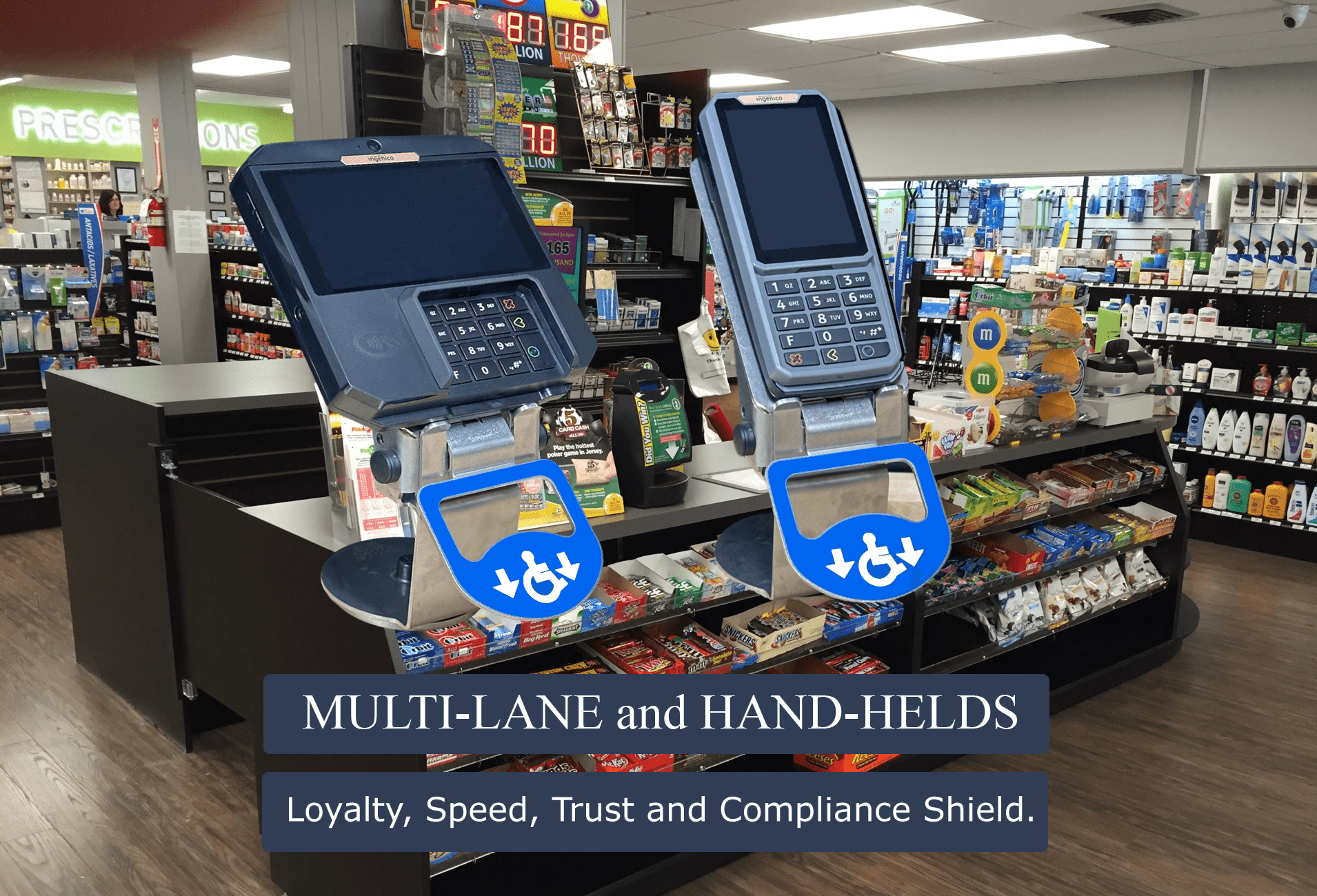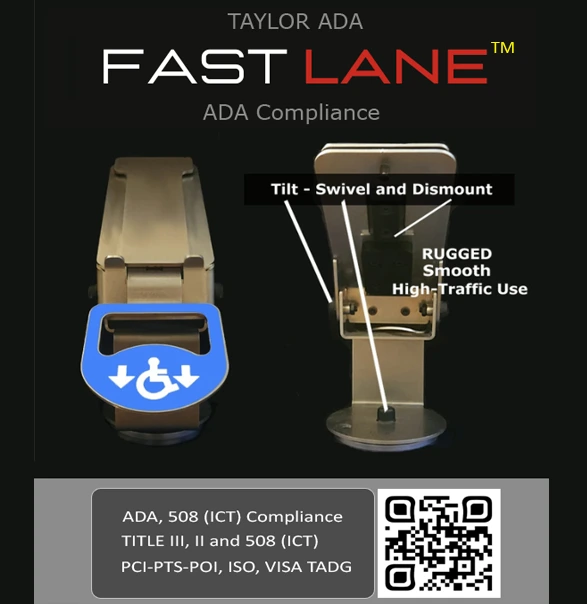Description
Addresses ADA, 508 (ICT), PCI PTS POI, ISO 9564, VISA, INC. TADG Compliance.
-
California Financial Code 13082(e) POS stand
-
ADA §707 POS terminal stand
-
Accessible POS mounting solution
-
Section 508 payment terminal stand
-
Disability access POS mount


